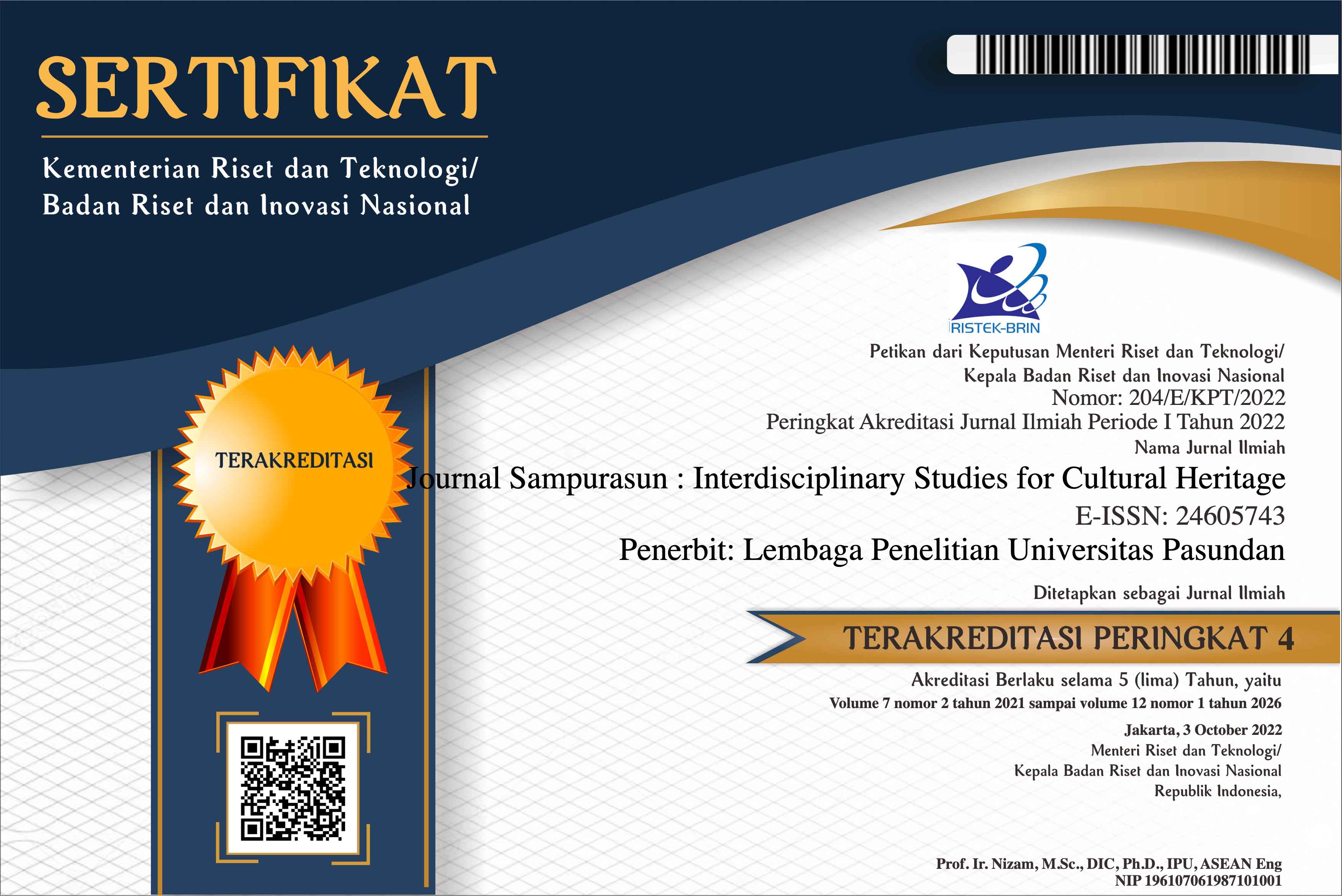CAPACITY BUILDING OF COMMUNITY-BASED REHABILITATION TO ACCESSIBILITY OF PERSONS WITH DISABILITIES
DOI:
https://doi.org/10.23969/sampurasun.v4i01.448Keywords:
accessibility, capacity building, Community-Based RehabilitationAbstract
Capacity building is the capability enhancement process of the Community-Based Rehabilitation (RBM) caretaker in providing services to persons with disabilities, so they could access their needed services. The purpose of this research is to study Capacity Building of Community-Based Rehabilitation to Accessibility of Persons with Disabilities in Cibiru Wetan Village, Cileunyi Sub-district, Bandung Regency. The research method used is qualitative with action research design. Data source used is primary data source and secondary data source. The data collection techniques used were in-depth interviews, participant observation, documentation study, and Focus Group Discussion (FGD). Data validity checking technique used is credibility, transferability, dependability, and confirmability. Furthermore, the results of this study were analyzed by qualitative analysis techniques. The results showed that the capacity building of RBM Cibiru Wetan caretaker enhances the capability of RBM caretaker to provide services to persons with disabilities.Shown by RBM Cibiru Wetan caretaker in providing services to identify the needs and problem of persons with disabilities, assessment, planning and working matrix, improving the RBM management, as well as recording the handling of cases of persons with disabilities. The RBM caretaker capacity impacts the quality of RBM services to be comprehensive and based on social work.
Downloads
References
Alftri. 2011. Community Development : Teori dan Aplikasi. Yogyakarta : Pustaka Pelajar
Etty Padmiati dan Sri Kuntari. 2011. Forum Rehabilitasi Berbasis Masyarakat (RBM) “Dharma Kerthi Praja Pascima”: Model Pemberdayaan Masyarakat dalam Penanggulangan Penyalahgunaan NAPZA di Kota Denpasar Propinsi Bali. Jurnal Sosiokonsepsia. Vol.16, No.02
Jenivia Dwi Ratnasari, dkk. 2013. Pengembangan Kapasitas (Capacity Building) Kelembagaan pada Badan Kepegawaian Daerah Kabupaten Jombang. Jurnal Administrasi Publik. Vol.1, No.3: 103-110
Jewell, Paul. 2010. Disability Ethics : a Framework for Practitioners, Professionals, and Policy Makers. Australia : Common Ground
LexiMoleong.2007.Metode Penelitian Kualitatif.Bandung: Remaja RosdaKarya
Stringer, Ernest T. 2007. Action Research. Third Edition. USA : Sage Publications
Totok Mardikanto dan Poerwoko Soebiato. 2015. Pemberdayaan Masyarakat dalam Perskpektif Kebijakan Publik. Bandung : Alfabeta
Downloads
Published
Issue
Section
License
Copyright Notice
Authors should not withdraw their submitted papers because the withdrawal wastes voluntary works devoted by an associate editor and reviewers. But, we accept the withdrawal of a submitted paper if authors have unavoidable reasons. In the event that a manuscript is to be withdrawn from submission to Sampurasun Journal, a letter must be sent to the editorial office requesting withdrawal by e-mail (sampurasunjournal@unpas.ac.id) with its scanned PDF file, before the notification of acceptance for publication.
The withdraw request letter must include the following information. Paper ID, Paper title, Authors names, Reason why the paper must be withdrawn, and Date and signatures of all the authors (or signature of the contact author).
If only the contact author signs the letter, he/she must obtain the agreement of the withdrawal from all the other authors and the letter must include the description that all the other authors agreed the withdrawal. The journal will not withdraw a manuscript from peer review until such a letter has been received. Authors must not assume their manuscript has been withdrawn until they have received appropriate notification from the editorial office. Withdrawal of a manuscript subsequent to acceptance for publication will only be granted in the most exceptional of circumstances.
After the paper is accepted for publication, the withdrawal is not permitted in principle. The authors must always pay the charge even if the withdrawal is permitted. Any request of withdrawal that does not follow the above procedure is treated as invalid. If illegal submission, e.g., plagiarized or duplicate submission, is found for a paper, the withdrawal of the paper will never be permitted and the authors will be punished based on the rule. It is not acceptable practice to withdraw a manuscript in the event of acceptance at another journal. This constitutes dual submission. The editorial office of the other journal will be notified of your actions. In such circumstances Sampurasun ISCH may chose to impose appropriate punitive action subject.
Withdrawal Penalty
Author is not allowed to withdraw submitted manuscripts, because the withdrawal is waste of valuable resources that editors and referees spent a great deal of time processing submitted manuscript, money and works invested by the publisher. If author still requests withdrawal of his/her manuscript when the manuscript is still in the peer-reviewing process, author will be punished with paying $200 per manuscript, as withdrawal penalty to the publisher. However, it is unethical to withdraw a submitted manuscript from one journal if accepted by another journal. The withdrawal of manuscript after the manuscript is accepted for publication, author will be punished by paying US$500 per manuscript. Withdrawal of manuscript is only allowed after withdrawal penalty has been fully paid to the Publisher. If author don't agree to pay the penalty, the author and his/her affiliation will be blacklisted for publication in this journal. Even, his/her previously published articles will be removed from our online system.


















